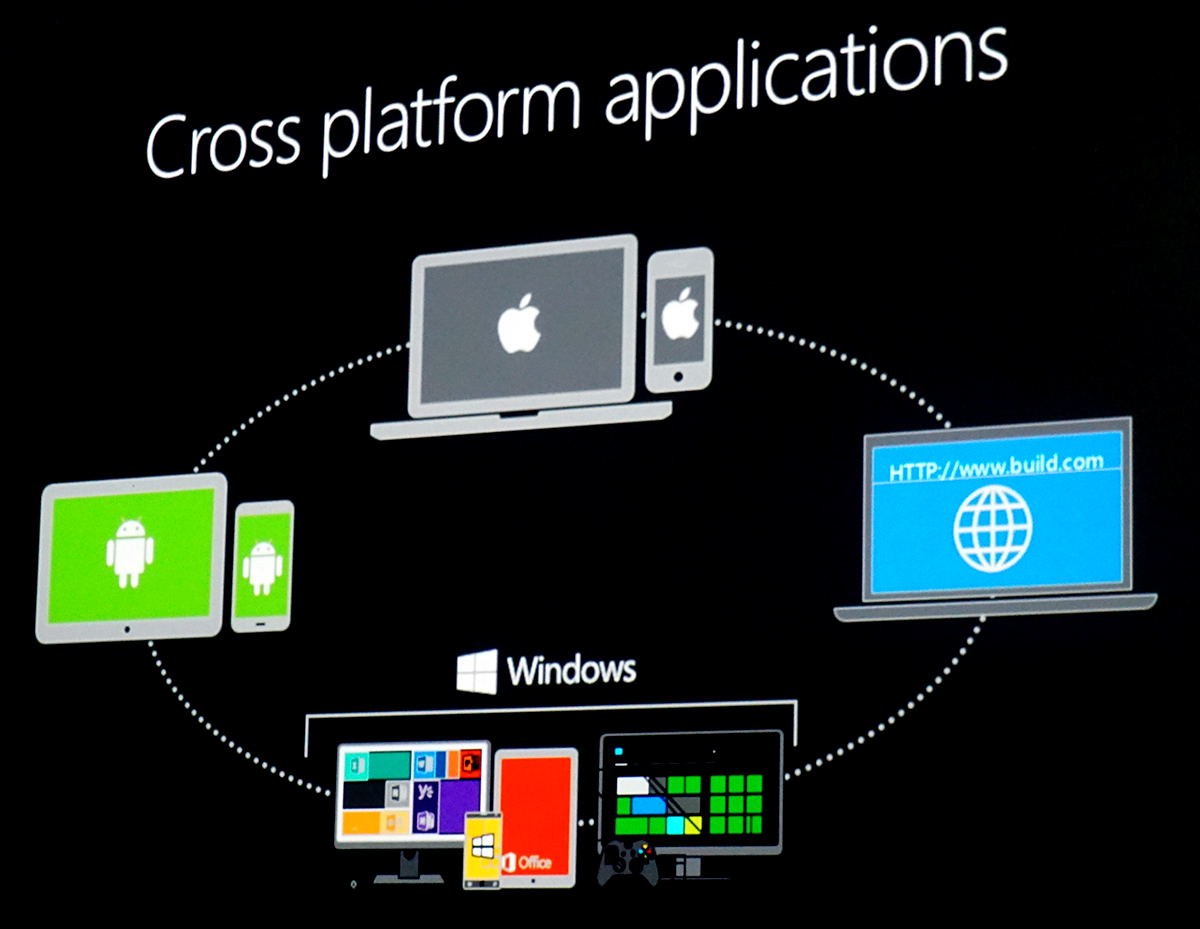Microsoft Vetting iOS Developers With Project Islandwood Guide
Microsoft released an official guide for iOS developers to begin using Project Islandwood, a porting tool for iOS apps that enables them for use in the Windows mobile ecosystem.
We first got details of Microsoft’s initiative to save its struggling smartphone business back in April, with a brief overview of the company's iOS and Android porting tools. Project Islandwood is the codename for Microsoft’s Windows Bridge for iOS, whereas the Project Astoria is for Android. (The future of the latter appears to be in doubt.)
Islandwood is a conversion tool that loads an Xcode-based project and changes it into a Visual Studio solution, enabling developers to build, edit and deploy their app as a fully-featured Windows app. This program doesn’t convert source code to C# or JavaScript -- the port is written in Objective-C, and Microsoft promised it always will be.
Project Islandwood can potentially give Microsoft a wider acceptance and market share of mobile devices running Windows 10 for phones. One of the primary detractors of Windows-based smartphones is app compatibility, which is one of the chief reasons why iOS and Android users dominate the segment. However, Microsoft appears to be bridging the gap by offering developers a useful tool for porting their already-made iOS applications to a Windows environment.
To use the Project Islandwood port, developers must have a Mac running the current version of Xcode, a PC (or virtual PC) running Windows 10, a copy of the community version or fully featured Visual Studio 2015 (including the Windows 10 SDK), and a copy of the Project Islandwood tools, available at GitHub.
Microsoft does not intend Project Islandwood to replace traditional development of applications for Windows-based ecosystems; it’s simply providing a resource to make that transition a bit easier.
“I wouldn't think of this as a way to continue major development on the PC side - there is no good way to edit the ViewControllers once they have been converted into XML,” stated the official guide. “Think of it more as an ‘Ok, I need to get this Windows version of this project kicked off, and this tool will get the grunt work done for me’.”
Get Tom's Hardware's best news and in-depth reviews, straight to your inbox.
It’s great to see Microsoft opening up development opportunities for its Windows mobile ecosystem, and perhaps with Project Islandwood officially seeing the light of day, there may be new hope for Project Astoria.
Derek Forrest is an Associate Contributing Writer for Tom’s Hardware and Tom’s IT Pro. PC gaming, graphics hardware and VR devices are among his favorite topics to cover. He is a lifelong PC enthusiast, former IT administrator and a custom PC builder with a penchant for creating music, voice acting and all things geek.
Follow Derek Forrest on Twitter. Follow us on Facebook, Google+, RSS, Twitter and YouTube.
Derek Forrest was a contributing freelance writer for Tom's Hardware. He covered hardware news and reviews, focusing on gaming desktops and laptops.
-
jasonelmore can any ios developers who have tried this, chime in and tell us what you think about it?Reply -
alextheblue Replycan any ios developers who have tried this, chime in and tell us what you think about it?
I heard Candy Crush Saga was ported to WP (and Win10) using an early version of this. If that's accurate it seems to work well. -
mijunkin I feel like most articles about Windows development misunderstand the ecosystem. This isn't a solution for iOS apps to work on Windows Phones. This is a solution to bring iOS apps into the Universal Windows Platform, which will allow those apps to run on anything from a Raspberry Pi, to your work desktop. That is a game changer.Reply
